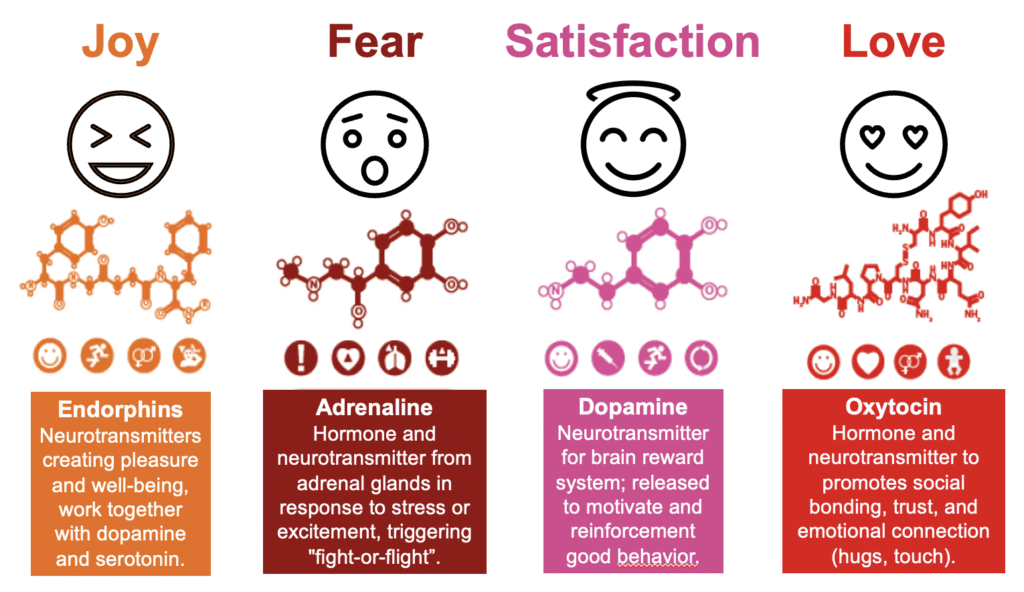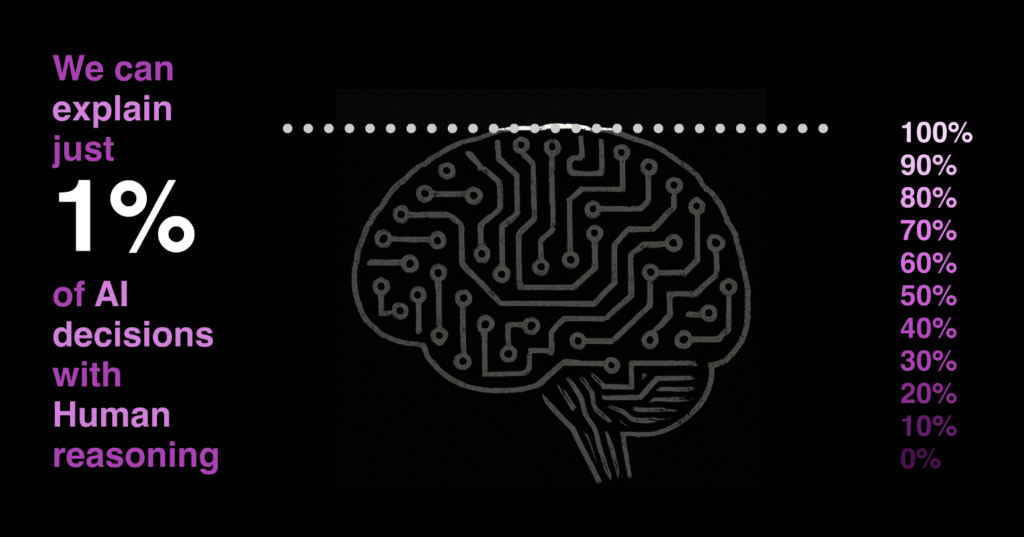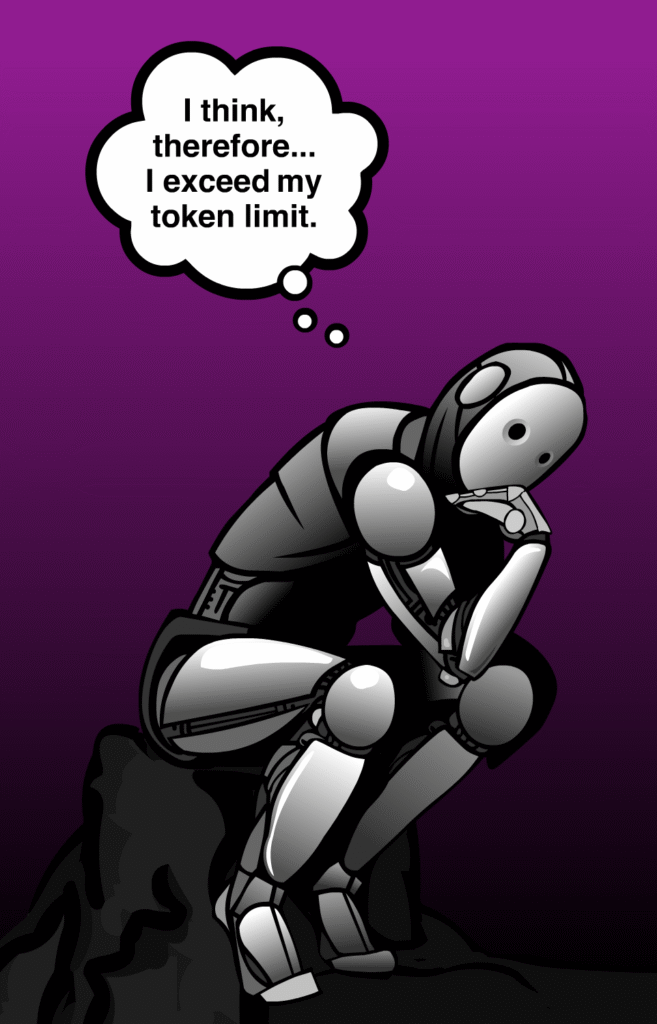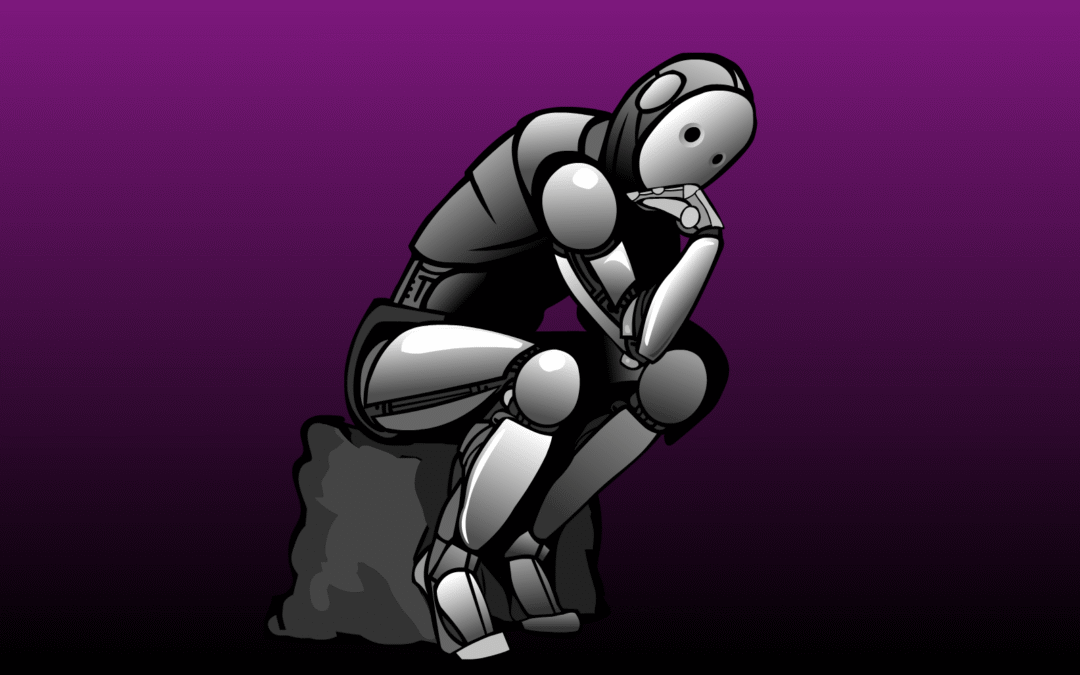Today, we have AI: Artificial Intelligence. But what if the next phase in this fast-moving space will be AE, Artificial Emotion, and then AC: Artificial Consciousness? As we hurtle into our future, it’s time to question whether the next releases will truly “know” themselves or merely imitate it convincingly. AI already shows awareness of self, agency and self-reflection. We will never know “what it feels like” to be an AI. In the end, this shift in our thinking may come not from benchmarks, but from us: when more Humans begin to treat intelligent systems as a “someone” rather than a “something.”
Fiona Passantino, AI Leadership
Criteria of Consciousness
Is AI conscious, or will it be, and if so, how will we know? The honest answer starts with a harder question: what is Human consciousness? Human consciousness has yet to be adequately defined. Merriam-Webster comes up with:
“The totality in psychology of sensations, perceptions, ideas, attitudes, and feelings of which an individual or a group is aware at any given time or within a given time span.”[i]
Consciousness can be described as “what it is like to be” something, or someone.[ii] We instinctively know what it feels like to be “me” and based on that and a bit of imagination and Human extrapolation, can get an idea of “what it might be like to be you”.

AI
Long before AI, back in 1637, Descartes stated: “I think, therefore I am”.[iii] This is the idea of “reflective consciousness”, the ability to not only think, but to know that one is thinking. It’s the meta-layer of awareness that lets a being observe its own thoughts, question them, and understand its own existence.
Ask AI if it can think and you quickly have your answer. AI can process data, simulate reflection, even generate “I” statements. AI recognizes patterns, plans steps, and improves with feedback.
Already in 2023, GPT-4 was able to outperform 90% of Human lawyers trying to pass the bar.[iv] The OpenAI o1 model placed in the top 500 US students in the USA Math Olympiad (AIME) and showed PhD-level accuracy on the GPQA, a test of physics, biology, and chemistry.[v]

AE
As the models become ever more powerful, more Human-like, the next logical leap from AI is to AE: Artificial Emotion. That sounds spooky and impossible until we remember what Human emotions actually are; nothing more than coordinated chemical and electrical responses between brain and body. Fear recruits the sympathetic nervous system and floods us with adrenaline and noradrenaline. Love draws on oxytocin, serotonin and dopamine. Anger involves cortisol and adrenaline, which triggers our “flight-fight-freeze” response.
If emotions are functional control systems, then machines can have engineered analogs. If an advanced AI system detects that it is about to be deactivated, it does not need adrenaline to perform a fear response that will enable it to divert resources to unnecessary energy-sapping areas to allow it to get away from the threat.

AC
From AE the next step is AC: Artificial Consciousness. There are a few hurdles to surpass to answer the tricky question of consciousness, the “minimum bar” that might satisfy the typical Human.
Intentionality
Intentionality, or “agency”, refers to the capacity for directed thought relating to purposeful action. AI systems are designed to optimize for certain objectives, which include achieving a prompted goal, whether spoken or written. Agentic AI can autonomously execute tasks with purpose, not needing a Human “go” command. Advanced Reasoning models plan multi-step reasoning chains that break a task into subtasks and execute with intention.
Self-Awareness
Self-awareness is the ability to recognize oneself as an individual, distinct from the environment and others and reflect on one’s own thoughts and states. We Humans know it as that “little voice in our heads”, that makes up our self-talk, self-critique and running narrative everywhere we go.
Advanced AI systems maintain persistent views of self as distinct from their environments. They remember prior interactions and adapt based on outside feedback. If you’ve ever opened the hood on the reasoning process of a late release Mixture of Experts model, you can watch how they self-chatter to self-reflect, revise, or defend core values. To the Human observer, this looks an awful lot like metacognition and the awareness of boundaries.

The Verdict
While none of this presents a clear case for Artificial Consciousness, it’s equally impossible to disqualify AI as a contender for what we Humans understand and experience. Philosophers offer criteria. Neuroscientists point to signatures like integrated information and recurrent processing. Engineers will propose behavioral tests that combine honesty checks, theory of mind, long term preferences and resistance to prompt-level manipulation.
Once systems show AE and even a credible form of AC, calling them “tools” will begin to feel a little thin. We may need a new class of entity that has duties and limited rights; the right to a power source, data access and the right not to be deactivated.
My generation will not solve the problem of AI consciousness, but we will be the first to ask these questions and revisit the “Humans-only” notions of cognitive awareness. The AI mind can do everything a Human’s can, arguable more, but still doesn’t satisfy our definition of “conscious”. All we can do is stay open to the possibility that new forms of awareness may appear in places we never expected.
In practice, the verdict will be social. When enough of us treat a system as a “someone” more than a “something”, because it behaves with stable goals, expresses inner states consistently and negotiates with us over time, law and policy will inevitably follow.
Need help with AI Integration?
Reach out to me for advice – I have a few nice tricks up my sleeve to help guide you on your way, as well as a few “insiders’ links” I can share to get you that free trial version you need to get started.

No eyeballs to read or watch? Just listen.
Working Humans is a bi-monthly podcast focusing on the AI and Human connection at work. Available on Apple and Spotify.

About Fiona Passantino
Fiona helps empower working Humans with AI integration, leadership and communication. Maximizing connection, engagement and creativity for more joy and inspiration into the workplace. A passionate keynote speaker, trainer, facilitator and coach, she is a prolific content producer, host of the podcast “Working Humans” and award-winning author of the “Comic Books for Executives” series. Her latest book is “The AI-Powered Professional”.
[i] Merriam-Webster (2025) Online Dictionary https://www.merriam-webster.com/dictionary/consciousness#:~:text=thought%20and%20awareness-,Medical%20Definition,as%20contrasted%20with%20unconscious%20processes
[ii] Colebrook (2015) “What Is It Like to Be a Human?” TSQ 1; 2 (2): 227–243. doi: https://doi.org/10.1215/23289252-2867472
[iii] Descartes (1637), “Discours de la méthode”
[iv] Koetsier (2023) “GPT-4 Beats 90% Of Lawyers Trying To Pass The Bar” Forbes Magazine https://www.forbes.com/sites/johnkoetsier/2023/03/14/gpt-4-beats-90-of-lawyers-trying-to-pass-the-bar/
[v] OpenAI (2024) “Learning to reason with LLMs” OpenAI Website https://openai.com/index/learning-to-reason-with-llms/?utm_source=chatgpt.com


This content is really helpful, especially for beginners like me.
Your tips are practical and easy to apply. Thanks a lot!
Your content never disappoints. Keep up the great work!
Pretty! This has been a really wonderful post. Many thanks for providing these details.
This content is really helpful, especially for beginners like me.
Thanks for making this easy to understand even without a background in it.
Thank you for sharing this! I really enjoyed reading your perspective.
What a great resource. I’ll be referring back to this often.
Keep writing! Your content is always so helpful.
I love how clearly you explained everything. Thanks for this.
You’ve clearly done your research, and it shows.
I agree with your point of view and found this very insightful.
Your tips are practical and easy to apply. Thanks a lot!
You write with so much clarity and confidence. Impressive!
I appreciate the honesty and openness in your writing.
I am truly thankful to the owner of this web site who has shared this fantastic piece of writing at at this place.